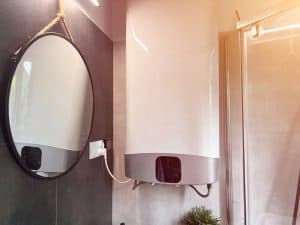Articles are a great way to enlighten your audience on a topic and inspire interaction. Whether you’re a pest control company or hotel chain, articles can help build your brand and increase customer engagement.
Epoxy is a durable material that is resistant to many things that would damage other floors. It also has a smooth, shiny appearance that is attractive to the eye.
1. Durability
Epoxy floors are an excellent choice for any environment where durability is a major concern. Unlike tiles, epoxy floors are durable enough to support heavy equipment and wheeled vehicles without cracking or chipping. They can also be made to withstand extreme temperatures. This is an important consideration for facilities that store or handle hazardous materials because the floor can remain unaffected by spills or leaking containers.
Epoxies can be designed to look a variety of ways, allowing for a great deal of creative flexibility in the design of your facility. Using special pigments and techniques, your epoxy floor can be molded to look like liquid metal, colored glass, storm clouds or moon craters. This makes your facility unique and allows you to create a specific mood or aesthetic in your space.
Another advantage of epoxy is its resistance to chemical damage. While tile can be damaged by certain chemicals, epoxy is resistant to most, if not all. This is an especially useful feature for commercial spaces that may experience oil or other chemical spills. Because the epoxy forms a non-porous seal over the concrete, it prevents the toxins from being absorbed into the ground, making cleanup much easier.
As with any flooring material, the longevity of your epoxy floor depends on how it is treated and maintained. Sweeping and vacuuming regularly, wiping up spills promptly, and avoiding the use of abrasive cleaners or equipment will help prolong its lifespan. Other factors that can affect its durability include the amount and type of traffic it experiences, and the level of chemical exposure. Maintaining a consistent curing temperature and minimizing exposure to extreme conditions can also increase the lifespan of your epoxy.
2. Low Maintenance
Many facility managers have found that their tile floors just don’t stand up to heavy foot traffic and the weight of machinery and vehicles. This is where epoxy really shines. Once installed, an epoxy floor requires very little maintenance to keep it in good condition. Simply sweep and mop on a regular basis to remove dirt and debris and the flooring will look great. Tiles, on the other hand, have grout lines which can become dirty and create trip hazards if not cleaned properly.
In addition to being able to hold up to the pressure of cars, trucks and heavy equipment, an epoxy floor can also be made slip-resistant by adding a grit additive to the protective coating. This can be an especially important feature for public safety facilities where vehicles and emergency responders are often moving around on the floor.
Another big advantage of epoxy is that it is much easier to clean than tiles. While tiles can be cleaned with a variety of cleaners and brushes, epoxy requires only sweeping or vacuuming on a regular basis to keep it looking new.
It’s also easy to wipe up any liquid spills on an epoxy floor as they come up, unlike tile which can stain and damage the surface if not cleaned immediately. It’s a good idea to place a non-slip mat under vehicles that will be parked on an epoxy floor in order to protect the material from battery acid, which can discolor even the toughest of epoxy flooring materials.

3. Easy to Clean
Because of its durability, epoxy floors are very easy to clean and keep sanitized. This makes them a popular choice in facilities where germs, bacteria and other pathogens are common. It is very hard to create an atmosphere that is completely free of microbes, especially in high-traffic areas.
Epoxy flooring is much easier to sanitize than tile floors, making it a healthier choice for your facility. Sweeping and mopping your epoxy floor with a mild detergent solution on a weekly basis will help to remove dirt, bacteria and other debris from the surface. This will also extend the life of your flooring and will protect it from damage.
Sweeping your floor regularly will help to remove any dirt particles that are trapped in the curves of the epoxy coating. This will prevent your flooring from becoming uneven over time, and will prevent any cracks in the surface. It is a good idea to vacuum, sweep or dust mop your floor every week, depending on how busy the area is. If your floor is used for vehicles, be sure to wipe up any oils, anti-freeze or other chemicals that may drip onto the flooring to prevent them from becoming a permanent stain.
Epoxy systems are generally more resistant to scratches, scuffing and impact damage than tiles. However, as with any flooring option, both tiles and epoxy will deteriorate over time. If you have any large gouges, cuts or scratches in your floor that aren’t addressed promptly, they can erode the material underneath and cause it to fail. In most cases, a simple cleaning process using hot water and a mild detergent will be enough to restore the appearance of your floor.
4. Aesthetics
When it comes to flooring, aesthetics play a key role in determining the overall look and feel of an interior. Epoxy is an increasingly popular choice for commercial and residential spaces because of its unique, customizable aesthetics that can enhance the ambiance of any room.
Epoxy offers endless possibilities in terms of style, color, and texture. With techniques such as color blending, shimmering flakes, and embedding custom designs or logos into the epoxy, designers can create floors that perfectly match any design theme or preference. Additionally, the seamless nature of epoxy flooring obliterates the need for grout lines and seams, which can add to its visual appeal and ease of cleaning.
Additionally, with the right pigments and techniques, epoxy can be made to resemble lava lamps, liquid metal, colored glass, storm clouds, moon craters, and more. Because of the way these pigments interact with light, no two rooms with epoxy floors will ever look exactly the same. Additionally, epoxy is extremely durable compared to tile and won’t fade or crack over time.
While a lot of people might be impressed by the variety of styles and colors available in tile, many may be disappointed by how these tiles can easily become dull and lifeless after some time. This is because most tile flooring options don’t offer much in terms of durability or visual impact and require regular maintenance to keep them looking new.
Fortunately, with epoxy, all of these problems can be avoided. Epoxy is highly resistant to scuffs, scratches, and stains, and can easily withstand the heavy weight of carts and furniture. In addition, epoxy floors are a great option for areas where vehicles and machinery often need to be moved around. However, it is important to note that epoxy can be damaged if heavy furniture or equipment is dragged across the surface, so it’s a good idea to use protective pads or lift and carry any large items rather than drag them.
5. Cost
In the short term, tile floors can appear to be less expensive than epoxy flooring. However, once the tiles start to fail, facility managers are often forced to pay for costly reinstallation and repairs in order to prevent safety hazards. This can result in a loss of company revenue due to extended or lapsed production.
Moreover, damaged or cracked tiles can create a dangerously slippery floor. If a person is not careful, a simple slip can result in serious injury or even death. This is why it’s so important for facility managers to invest in a durable flooring material that provides safety and security.
When properly installed, epoxy floor coatings are durable and long-lasting. This is an example of A Step-by-Step Installation Guide for Epoxy Floors. Moreover, it is an environmentally friendly option.
The durability of epoxy is a result of its resinous makeup. Resins make it resistant to a variety of stresses. It can withstand the weight of heavy vehicles, rolling tool carts, and even jack stands. It also resists chemical and oil spills. Furthermore, epoxy is an impenetrable seal, preventing bacteria and chemicals from being absorbed into the concrete and contaminating the area.
Although epoxy can be quite costly, it is an investment that will last for years to come. Depending on the area and type of epoxy, the cost can vary. However, it is vital to understand that the cost of a professional installation and proper concrete preparation should be factored in.
It’s critical to note that improperly installed epoxy can void the manufacturer warranty. The best way to avoid voiding the warranty is to hire a professional flooring contractor.




